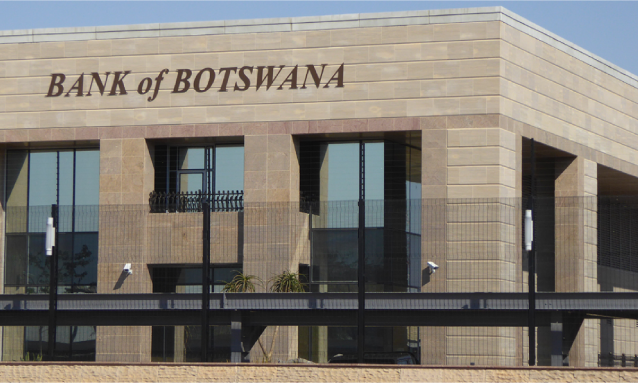The Bank of Botswana Monetary Policy Commitee has noted that inflation in Botswana is expected to persist before the economy bounce back.
” The projected increase in inflation in the short term is primarily due to transitory supply-side factors that, except for second-round effects and entrenched expectations (for example, through price adjustments by businesses, contractors, property owners and wage negotiations), would not normally attract monetary policy response.
The latest increase in inflation mainly reflects the upward adjustment in domestic fuel prices in July 2021. However, inflation is projected to revert to within the objective range in the second quarter of 2022, mainly on account of the dissipating impact of the recent upward adjustment in value added tax (VAT) and administered prices from the inflation calculation; which altogether contributed 5.2 percentage points to the current level of inflation.
” Bank of Botswana revealed.
Of recent, there has been an increase in most commodity prices due to the new taxes, and levies introduced by the government. Fuel prices have moved up several times; increasing three (3) times in a period of five (5) months. Furthermore, Botswana Power Corporation (BPC) has also submitted a proposal to BERA. to have electricity prices adjusted upatds.
According to the central bank of the country, Inflation rose from eight point two (8.2) percent in June to eight point ,(8.9) percent in July 2021. This increase meant that the inflation grew further above the Bank’s medium-term objective range of three to six (3 – 6) percent.
The projections by the bank further observed that the inflation is perpetuated by the improving economic conditions in the Western countries which is not in sync with domestic economy.
“Overall, risks to the inflation outlook are assessed to be skewed to the upside. These risks include the potential for increase in international commodity prices beyond current forecasts; persistence of supply and logistics constraints due to possible maintenance of travel restrictions and lockdowns; and domestically-based risk factors relating to second-round effects of the recent increases in administered prices and inflation expectations that could lead to generalised higher prices. Furthermore, aggressive action by governments (for example, the Economic Recovery and Transformation Plan (ERTP)) and major central banks to bolster aggregate demand, as well as the successful rollout of the COVID-19 vaccination programmes, could add pressure to inflation. These risks are, however, moderated by the possibility of weak domestic and global economic activity.” Bank o Botswana proclaimed.










